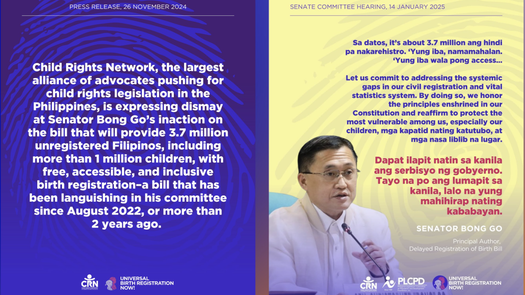February 4, 2026
At a workshop for government stakeholders in Sri Lanka in February 2020, officials committed to sharing information to produce better-quality data that can improve public health policies. The workshop was convened in Colombo by the Global Health Advocacy Incubator (GHAI) with Vital Strategies, the country lead for Bloomberg Philanthropies’ Data for Health (D4H) Initiative. Officials participated from the Ministry of Health, the Department of Census and Statistics’ Vital Statistics Division, and the Registrar General’s Department.

The workshop introduced a new Legal and Regulatory Review Toolkit developed by GHAI in collaboration with other D4H partners. The toolkit is designed to assist with the legal analysis of Civil Registration, Vital Statistics and Identity Management (CRVSID) systems around the world. It is based primarily on the United Nations Principles and Recommendations for a Vital Statistics System and the UN Guidelines on the Legislative Framework for Civil Registration, Vital Statistics and Identity Management. It also supports Sustainable Development Goal target 16.9, to provide a legal identity for all by 2030.
The toolkit is designed to be customizable and can be used by lawyers operating in different legal systems and diverse cultural contexts. To date, the toolkit has been successfully employed in Bangladesh, Brazil, Cambodia, Colombia, Ecuador, Ghana, India, Papua New Guinea, Peru, Philippines, Rwanda, Solomon Islands, Tanzania and Zambia to assess the existing legal and regulatory framework around CRVS in those countries in comparison with international best practice.

Sri Lanka is at the beginning of the legal review process. Before the workshop, GHAI trained a team of local lawyers to use the toolkit. In Bangladesh, where a legal review has already taken place, GHAI and our partners hosted a CRVSID Legal Review Recommendations Workshop in March. At the event in Dhaka, GHAI shared recommendations for reform with senior government officials from the Office of the Registrar General, the Ministry of Health, and the Bangladesh Bureau of Statistics, as well as international partners including UNHCR, UNICEF, and the World Health Organization.
Other countries show what is possible with a legal analysis and government commitment. A toolkit analysis of CRVS laws in the Philippines contributed to the signing of an Administrative Order on Medically Certified Cause of Death that will help the government achieve its goal of ensuring that at least 85 percent of deaths in the country have a medically certified cause of death by 2024.
In Papua New Guinea, the government is expected to pass new Civil and Identity Registration Bill and Regulations this year, based on a legal review and recommendations made using the toolkit.
“The bottom line for what we’re trying to do in CRVS is that the data collected provides information on which evidence-based planning can be carried out by the national government; and that, for us, is paramount,” Noel Mobiha, the Acting Registrar General of Papua New Guinea, said.
The Data for Health Initiative was created to ensure that all persons have a documented legal identity from birth and that the government knows and documents the causes of deaths.




